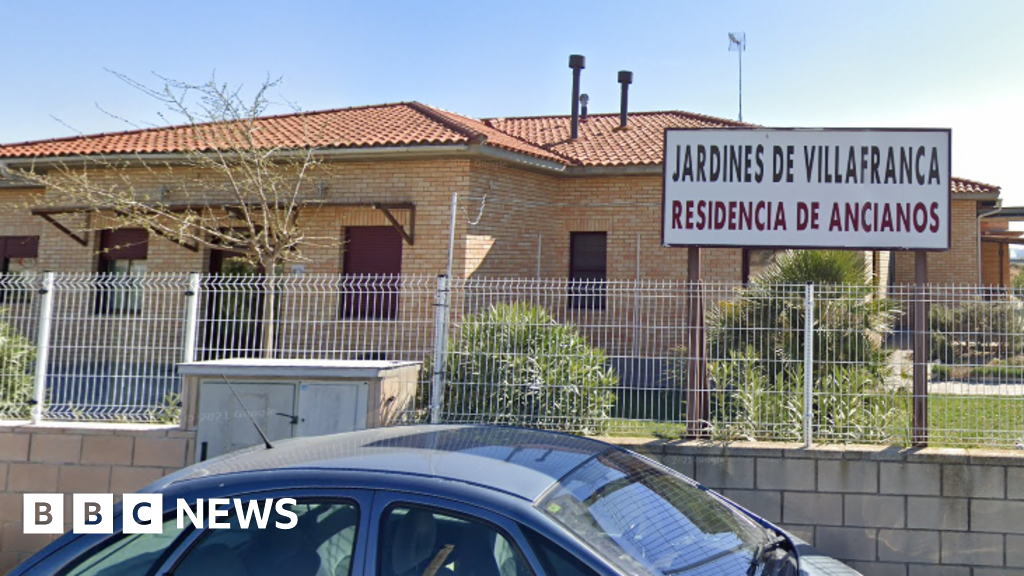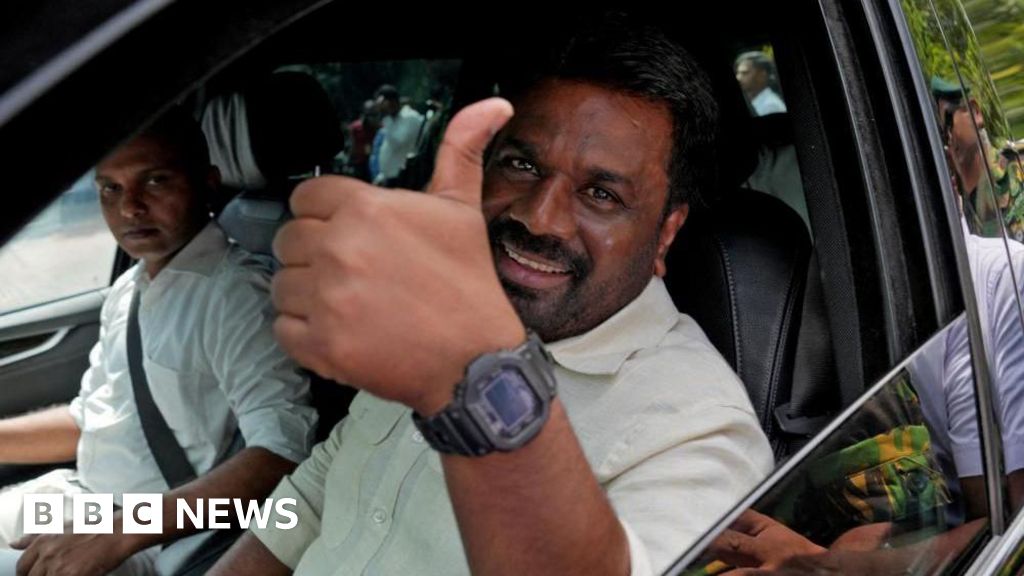ARTICLE AD BOX
By Elaine Jung and Hafizullah Maroof
BBC World Service
Rabia is cradling her newborn baby, just days after giving birth at a small hospital in Nangarhar province in Afghanistan's east. "This is my third child, but the experience was totally different. It was horrible," she says.
In a matter of weeks, the birthing unit Rabia delivered her baby in had been stripped down to its bare basics. She was given no pain relief, no medicine and no food.
The hospital sweltered in temperatures topping 43C (109F) - the power had been cut and there was no fuel to work the generators. "We were sweating like we were taking a shower," says Rabia's midwife Abida, who worked tirelessly in darkness to deliver the baby by mobile phone light.
"It was one of the worst experiences I've ever had in my job. It was too painful. But this is our story every night and every day in the hospital since the Taliban took over."
Surviving childbirth means Rabia is one of the lucky ones. Afghanistan has one of the worst maternal and infant mortality rates in the world, according to the World Health Organization (WHO), with 638 women dying per 10,000 live births.
It used to be worse. Yet the progress made on maternal and neonatal care since the US-led invasion in 2001 is quickly unravelling.
"There is now a great sense of urgency and desperation. I really feel the weight of that," says United Nations Populations Fund (UNFPA) executive director Natalia Kanem.
The UNFPA estimates that, without immediate support for women and girls, there could be 51,000 additional maternal deaths, 4.8 million unintended pregnancies, and twice as many people who won't be able to access family planning clinics between now and 2025.
"Primary health facilities across Afghanistan are collapsing… maternal mortality rates, child mortality rates, will increase, unfortunately," says Dr Wahid Majrooh, chief of public health, who is the only minister remaining in post since Kabul fell last month. He's pledged to fight for the health of Afghans, but faces an uphill battle.
The landlocked nation has become cut off from the world. When foreign troops began withdrawing, the Taliban's rise to power led to a freeze on foreign aid which heavily finances Afghanistan's healthcare system. Western donors, including the US and groups such as the WHO, cite difficulties in delivering funds to the Taliban and medical supplies to a chaotic Kabul airport.
Access to life-saving supplies and medicines for women's reproductive health is being significantly affected. The timing is doubly unfortunate given the spread of coronavirus. "There is no preparation for the possibility of a fourth wave of Covid," says Dr Majrooh.
At Abida's birthing unit, the freeze on funds means they're also unable to run their ambulance service. There's no money for fuel.
"Just a few nights ago, a mother was close to labour and urgently requested an ambulance because she was in too much pain. We had to tell her to find a taxi, but none were available.
"When she finally managed to find a car, it was too late - she gave birth in the car and became unconscious for several hours because of the severe pain she was in and the extreme heat. We didn't think she'd survive. The baby was also in a very dangerous condition, and we had nothing to provide for either of them," Abida says.
Fortunately, the woman's newborn daughter survived. After three days recovering in the severely underfunded hospital, the woman was discharged.
"We're working overtime, day and night, to patch together a system but we need the funds," says the UNFPA's Dr Kanem. "Even before the dramatic events of the past few weeks, an Afghan woman dies in childbirth every two hours."
The UNFPA is seeking $29.2m (£21.1m) as part of the broader UN appeal for $606 million to respond to the lifesaving needs of Afghan women and girls. It's confident that, given the desperate need for humanitarian assistance, safe passage will be granted to transport vital medical and healthcare goods and deploy mobile health clinics.
The UNFPA is concerned that the increasing risk of child marriage will further drive up the mortality rate. Spiralling poverty, anxiety over girls being unable to attend school, and fears over forced marriages between militants and girls or young adolescent women, is compounding the issue. "If you're a young mother, your chances of survival shrink immediately," Dr Kanem says.
The Taliban's new restrictions on women are further crippling an already fragile healthcare system. In many areas of Afghanistan, women are having to cover their faces with a niqab or burka.
But of greater concern are reports that hospitals and clinics are being ordered to allow only female staff to attend to female patients. One midwife, who wishes to remain anonymous, told the BBC that a male doctor had been beaten up by the Taliban because he attended to a woman alone.
She says that, at her medical centre in the country's east, "if a woman cannot be seen by a female doctor, the male doctor can only see the patient where two or more other people are present".
Women have also been ordered not to leave their homes without a "mahram", or male relative.
"My husband is a poor man who works to feed our children so why should I ask him to go to the health centre with me?" says Zarmina, who is five months pregnant, in Nangarhar province.
Abida says the requirement of a male chaperone means that, even with a midwife and under-resourced clinic, many women like Zarmina can't attend important check-ups. Likewise, many female healthcare workers can't go to work.
The WHO calculates that there are 4.6 doctors, nurses and midwives per 10,000 Afghans - nearly five times below what it considers the "threshold for critical shortage". That figure is now likely to be lower, given that many have stopped working or have fled the country since the Taliban's takeover.
Read more on the Taliban takeover:
In late August, the Taliban asked female healthcare workers to return to work, but "it takes time to rebuild trust, to ensure they're not faced with any issues," says Dr Majrooh.
"Everything changed overnight," says Dr Nabizada, a female gynaecologist in Kabul who resigned once the Taliban swept in and waited in vain outside Kabul airport for 24 hours, desperate to escape. Her former colleagues had either managed to flee Afghanistan or quit work to stay home in safety.
"My neighbour is 35 weeks pregnant and needed to set a date for a caesarean section. But her doctor's phone has been off. She's so tense and worried and hasn't been feeling her baby's movements."
Public healthcare staff have not received pay for at least three months. Abida is one of them. Yet even without a salary, she hopes to continue working for another two months.
"I've decided to do this for our patients and for our people… but without funding, it's not only worrying for us, but for our patients. They are very poor," she says.
"Afghans hear a lot about war casualties. But few talk about how many women and babies die due to preventable deaths linked to childbirth," says Heather Barr, associate director of the women's rights division at Human Rights Watch.
On a visit to Kabul in May, she says one hospital tried to protect staff salaries by cutting down on everything else. Many women in labour were forced to buy their own supplies to give birth.
"One woman spent about $26 on things like gloves, sterilising fluid, and a tube for the catheter in your hand. She'd spent the last of her money and was incredibly stressed because if she needed a caesarean section, she'd have to buy her own scalpel," Barr says.
But now, a scarcity of medicine and medical supplies means they can be bought only from private health care facilities, which is an unaffordable option for many Afghans.
"I saw other pregnant women wait a whole day for any sort of medicine at our local clinic and return home empty-handed," says Zarmina. "I'd prefer to give birth at home rather than the hospital as there is no medicine and no facilities. I'm worried about my baby's health and for my own health."
About 54.5% of Afghanistan's population live below the national poverty line, according to the World Bank. Most are in remote areas.
"We are dealing with communities with extreme needs and very insufficient resources to hand. We are facing a catastrophic health emergency," says Dr Lodi, who treats patients in poor and isolated villages in western Herat province. Since the Taliban takeover, his team has seen a dramatic increase in malnutrition, anaemia, mental health disorders and childbirth complications.
"Before the Taliban came to power, a health clinic diagnosed me with malnutrition and anaemia while I was pregnant," says Lina, 28, who lives in a small village in Herat province. Once the Taliban took control of the region, her husband - a shepherd - lost his job.
With little money and fearing the Taliban, Lina didn't revisit the clinic until her waters broke.
"My husband took me there by donkey. A midwife managed my complications and was able to birth my baby which had a low birth weight," she says. Lina remains at home in "a very bad condition" and, without an income, doesn't know how to provide for her baby.
Many Afghans fear that the country's healthcare crisis is deepening to a point of no return, and some of its most vulnerable people - pregnant women, new mothers and young children - are bearing the brunt.
"The situation is getting worse with every passing day," says Abida, who now goes about her midwife duties with a sense of hopelessness. "Nobody knows what will become of us."
The names of interviewees have been changed. Illustrations by Elaine Jung

 3 years ago
32
3 years ago
32








 English (US)
English (US)